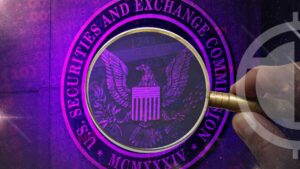
Crypto lawyer John Deaton recently joined a debate on Twitter related to the recently delivered summary judgment in the Securities and Exchange Commission’s (SEC) lawsuit against the crypto platform Ripple Labs. Deaton welcomed billionaire investor Mark Cuban’s response to an opinion piece by Bloomberg columnist Matt Levine and took issue with Levine’s stance on XRP’s alleged security status.
John Deaton took to Twitter earlier today to share his opinion on Matt Levine’s op-ed:
Solid response by Cuban on @matt_levine’s article. First and foremost, Matt is wrong when he says sometimes XRP
— John E Deaton (@JohnEDeaton1) July 15, 2023
is a security and sometimes it isn’t and claims that that is confusing and seems inconsistent on its face. What Levine said is exactly the OPPOSITE of what Judge Torres… https://t.co/HSwFKGzvsw
The debate began on July 14 when Levine published his opinion piece on Bloomberg. The lengthy op-ed drew comparisons between traditional investment vehicles like shares of tech giants Meta and Amazon and XRP. The columnist implied that the stock and the cryptocurrency could be interpreted as both a security and a non-security, depending upon the circumstances and nature of the trading environment.
Shark Tank star Mark Cuban responded to Matt Levine’s op-ed by highlighting the inaccuracies in his interpretation of the ruling by Judge Analisa Torres, who presided over SEC v Ripple. Cuban debunked the claims made by Levine regarding the security status of stocks and crypto due to the alleged similarities between them.
John Deaton doubled down on the criticism of Matt Levine’s op-ed and called him out for his fundamental misunderstanding of Judge Torres’ summary judgment. Deaton added that the misunderstanding stemmed from the ruling, which handed a small victory to the SEC by identifying institutional XRP sales as investment contracts i.e. securities.
The crypto lawyer called out the Bloomberg columnist for misinterpreting the ruling. He stated:
Matt Levine and others see an inconsistency because in one instance XRP was utilized in an investment contract and in another instance, it was not.
According to Deaton, Judge Torres applied the controversial Howey Test to each type of XRP sale made by Ripple and concluded that the cryptocurrency did not qualify as a security. The Howey Test is a method used by regulators to determine if an asset qualifies as a security. To be deemed an investment contract transaction, all three prongs of the Howey Test must be satisfied.














